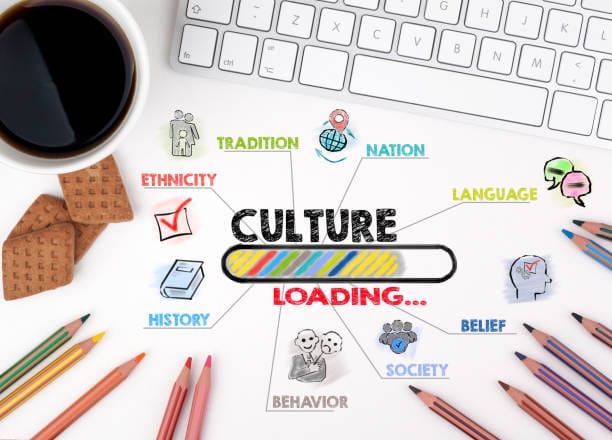Sourcing products from China offers incredible opportunities for businesses worldwide. Whether you’re a project contractor looking for cost-effective building materials or a brand owner seeking high-quality manufactured goods, China’s vast manufacturing industry can be a goldmine. However, navigating this landscape isn’t always smooth. Many foreign buyers make costly mistakes that lead to delays, subpar products, or financial losses.
If you’re planning to source from China, being aware of these common misconceptions can save you time, money, and frustration. Let’s dive into the biggest mistakes businesses make—and how to avoid them!
Lack of a Clear Sourcing Strategy

Jumping into the Chinese sourcing market without a well-defined plan is like setting sail without a map. Many buyers fail to outline their needs and expectations before engaging with suppliers. This often leads to confusion, inconsistent product quality, and wasted time.
First, clearly define your product specifications. Be precise about materials, dimensions, packaging, and performance requirements. Generic requests like “I want high-quality bags” can lead to wildly different interpretations. Instead, specify details such as fabric type, stitching quality, zippers, and branding elements.
Equally important is establishing supplier selection criteria. Will you work with manufacturers only, or are trading companies an option? What certifications should suppliers have? Answering these questions early will help filter out unreliable partners.
Lastly, market research is crucial. Understand industry pricing, competitor sourcing strategies, and standard quality benchmarks. The more informed you are, the better you can negotiate and set realistic expectations.
Inadequate Supplier Due Diligence

Not all suppliers are created equal. Some are reliable suppliers with excellent track records, while others are middlemen with no real control over production. Worse, some may not even be legitimate businesses.
Skipping due diligence is one of the biggest mistakes buyers make. Before committing, verify the supplier’s business license, factory certifications, and financial stability. Many reputable manufacturers are happy to share this information.
A factory audit is another essential step. You or a third-party sourcing agent should visit the factory to inspect production capacity, working conditions, and quality control procedures. If an in-person visit isn’t possible, request a virtual factory tour.
Remember: just because a supplier has an impressive website doesn’t mean they are trustworthy. Always dig deeper before signing a deal.
Focusing Too Much on Price Over Quality

It’s tempting to choose cheap products made in China, but as the saying goes, “you get what you pay for.” Many businesses fall into the trap of chasing the cheapest offer, only to end up with poor-quality products, production delays, or even outright scams.
A more strategic approach is to consider the total cost of ownership. This includes raw material quality, production standards, shipping costs, and potential risks. Sometimes, paying a little extra for a reliable manufacturer results in better product quality and fewer headaches in the long run.
When comparing quotes, ask for samples to assess quality firsthand. A supplier might promise premium products but deliver substandard goods. Testing samples before placing a bulk order can help avoid unpleasant surprises.
Poor or Nonexistent Contracts

A handshake agreement or an informal email chain is not enough when dealing with overseas suppliers. Without a proper contract, you have little recourse if things go wrong.
A solid contract should cover product specifications, pricing, lead times, payment terms, penalties for delays or defects, and dispute resolution mechanisms. It should be written in both English and Chinese to prevent misinterpretations.
Avoid vague terms like “high-quality materials”—be specific. If possible, involve a legal expert with experience in international trade to draft or review your contract.
No Local Representative or Contact Person

Doing business across different time zones, languages, and cultural expectations can lead to miscommunication. Many foreign buyers make the mistake of relying solely on emails or WeChat messages to coordinate with suppliers.
Having a local representative—whether it’s a sourcing agent, third-party inspector, or a trusted business partner—can help bridge the gap. They can visit factories, resolve issues in real-time, and ensure that production is on track. This is particularly useful when handling urgent matters that require immediate attention.
Lack of Product Inspection and Quality Control

Assuming your supplier will deliver perfect products every time is risky. Many first-time buyers make the mistake of skipping product inspections, only to discover defects when it’s too late.
Implement a robust quality control process. This includes pre-production samples, in-process inspections, and final product checks before shipment. Many professional third-party inspection services in China can conduct these checks for a reasonable fee.
By catching issues early, you can avoid costly returns and customer complaints.
Overlook Logistics and Supply Chain Management

Logistics can make or break your sourcing experience. Some buyers focus only on manufacturing without considering how their goods will be transported. Shipping costs, lead times, customs clearance, and import regulations all play a role in the total cost and timeline of your order.
Understand Incoterms (such as FOB, CIF, and EXW) and clarify who is responsible for freight costs and risks. Partnering with an experienced freight forwarder can help ensure smooth delivery and prevent unexpected delays.
Failing to Adapt to Cultural Differences

Cultural misunderstandings can lead to frustration and lost opportunities. Chinese business culture is built on relationships, respect, and long-term partnerships.
For example, suppliers may hesitate to say “no” directly, even if they cannot meet your request. Learning to read between the lines and communicate with patience can help prevent misinterpretations.
Building strong relationships with suppliers through face-to-face meetings (or virtual calls) fosters trust and cooperation, leading to better service and flexibility.
Lack of Intellectual Property Protection

Intellectual property (IP) theft is a concern for businesses sourcing from China, especially for those with unique product designs or proprietary technology. Some suppliers may copy your product or sell it to competitors if proper protections aren’t in place.
Register your trademarks and patents in China, as international registrations don’t automatically protect you there. Additionally, sign Non-Disclosure Agreements (NDAs) and Non-Compete Agreements with your suppliers to prevent unauthorized use of your designs.
Ignoring Compliance and Regulatory Requirements

Each country has specific import regulations and safety standards that products must meet. Failing to ensure compliance can lead to fines, shipment seizures, or customer dissatisfaction.
Research product certification requirements before placing an order. If you sell in the EU or the US, ensure your goods meet CE, FCC, or FDA standards where applicable. Working with compliance consultants can help avoid legal issues.
Poor Production Timeline Management

Many businesses underestimate production lead times, leading to costly delays. Factors like material shortages, factory workload, and quality inspections can extend timelines, affecting seasonal launches and promotional events.
Another major issue is China’s national holidays, especially Chinese New Year (CNY) and Golden Week, during which factories shut down for weeks. Without early planning, production can be severely delayed.
To avoid disruptions, businesses must build buffers into schedules and have backup suppliers in case of unexpected delays like raw material shortages or factory closures. There are some top wholesale websites in China which has timely delivery.
Ineffective Communication Channels

Poor communication with suppliers can cause misunderstandings, delays, and quality issues. Language barriers can lead to incorrect product specifications, while delayed feedback on samples or payments can push back production.
To improve communication, use clear, simple language, provide visual references, and ensure regular progress updates via emails or video calls. Scheduling weekly reports helps prevent last-minute surprises.
Neglecting Supplier Financial Health

A supplier’s financial instability can lead to delays, poor-quality products, or sudden shutdowns. Many buyers fail to check a supplier’s order history, financial references, or cash flow stability before placing large orders.
Negotiating favorable payment terms (e.g., 30% deposit, 70% upon shipment) reduces financial risk. Additionally, ignoring currency fluctuations can impact costs, so businesses should use international payment solutions to stabilize exchange rates.
Lack of Long-Term Relationship Building

Switching suppliers frequently can lead to inconsistent quality and unreliable lead times. Loyal buyers get better pricing, priority production, and flexibility, making supplier relationships a key advantage.
In China, trust and personal connections (“guanxi”) are vital. Regular check-ins, factory visits, and small gestures during holidays strengthen relationships and improve collaboration.
Suppliers prioritize consistent buyers, so maintaining a steady order flow—even if seasonal—ensures reliability and better service when needed.
No Risk Management Strategy

Sourcing from China comes with risks like factory closures, supply chain disruptions, and quality issues. Many businesses fail to conduct risk assessments or prepare contingency plans.
To minimize risks, companies should:
- Work with multiple suppliers to avoid dependency
- Implement strict quality control at all production stages
- Diversify shipping methods to prevent logistics issues
Ignoring insurance and legal protections can lead to financial losses. Investing in cargo insurance and supplier agreements ensures protection against unforeseen problems.
Source Smart, Avoid Costly Mistakes
Sourcing from China offers great opportunities, but it also comes with challenges. Many businesses make avoidable mistakes—such as poor supplier selection, weak contracts, ineffective communication, and lack of risk management—which lead to unnecessary delays, financial losses, and damaged reputations.
By planning ahead, fostering strong supplier relationships, and implementing effective quality control and risk management strategies, businesses can ensure a smooth and profitable sourcing experience.
The key to success? Treat your supplier as a long-term business partner, not just a one-time transaction. A strong relationship leads to better prices, higher product quality, and more reliability—giving you a competitive edge in the global market.







-300x198.png)